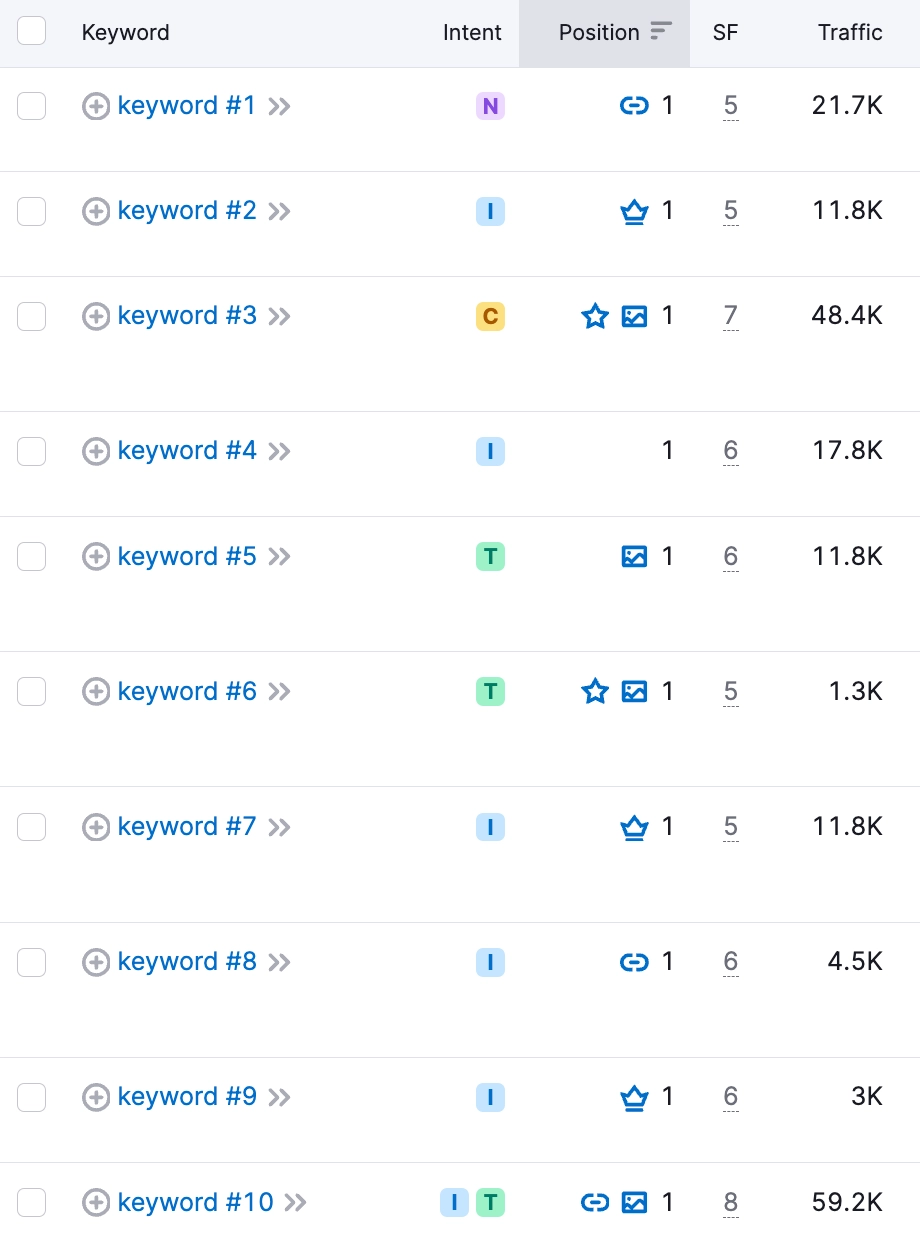Are you a business owner, online merchant, or content creator? If so, you probably want more people to visit your website, read your content, and purchase your products or services. The simplest way to achieve this is to discover what your potential customers or readers are searching for on Google and create content for your website on those topics.
Every search is an expression of their needs, desires, and interests. Imagine the benefit your business could derive if you could analyze Google search trends, find search terms related to your field, and personalize your website content to meet the real needs of your customers.
How can keyword research help your website SEO? The search for the right keywords is the most important step in your SEO strategy. Everything that follows in terms of content, on-site optimization, and link building will depend on what you have decided to target.
So, this step should not be neglected, and it should be regularly updated as there are constantly new positioning opportunities. Your competition is evolving, and so is the behavior of internet users!
For example, Google estimates that every day, 15% of searches have never been performed before.
In this article, we present to you 5 complementary and free keyword tools that will help you find new keyword ideas for the content on your website or blog. But first of all, let’s analyze some tips for the correct organization of the collection of keywords.
Organize your work with keywords conveniently
We begin our study by opening an Excel spreadsheet: we will copy all the suggestions we find into it, delete duplicates, and at the end of the article, we will have a first list of interesting keywords. This is only the first step, but it is the most important, so take your time!
We focus here on free online keyword tools because we believe that a good use of these is sufficient to produce a relevant list of keywords. Our list is based on complementary tools, as these 5 tools do not offer the same functionalities.
5 free tools for your keyword research
1. Ubersuggest
The minimalist interface of this tool is one of the most famous on the market.
Enter a first expression around our theme and choose your language.
The operation is very simple: you click on the “Look up” button, and you will get a list of keyword suggestions around your theme.
Of course, you can perform other searches! The tool is completely free and only the somewhat annoying advertisements interfere with navigation.
After each search, we recommend exporting the results:
by clicking on the red “Download all” button at the top right: this generates an Excel file of which only the first column will interest you a priori or simply by clicking on the “View as text” button: you will get the full list for your keyword and can easily copy/paste into your Excel spreadsheet.
2. Keyword Sheeter
The interface is minimalist, giving the impression that we are on a website from the 90s, but let’s proceed. In the tool, you need to enter a keyword and click the “Start search” button.
It starts running, and beware, it may never stop! I advise you to allocate time to process the request in this tool, as its suggestions are quite relevant.
However, be careful: the tool is relevant for a broad search, but it may not be incredible for very specific or geo-localized searches. We’re not telling you anything new, that’s the nature of the game with tools, you have to know their strengths and weaknesses.
You can of course launch other searches. But before that, especially, we don’t forget to select all the keywords and put them in our Excel file. We can also click on the “Download” button: we get a .txt file, as basic as the tool, but we take the opportunity to include them in our Excel file, which we will sort later.
3. Answer the public
A different approach for this tool goes beyond the spelling variations and synonyms of the two aforementioned tools. This time, we seek to understand what the user wants, and what they are looking for before landing on your site. The application is aptly named, as it seeks to answer our question.
If they are looking for how to become a magician, they may not necessarily type “become a magician,” but rather, in a much more “human” way: “how to become an illusionist magician.”
In this tool, you need to enter a keyword and select a language. We get a list of keywords presented in a friendly manner.
You can even export this list. Nice, although we still wonder what we could do with it – you can click on the “Export CSV” button in the upper right corner and quickly put everything in my already well-stocked Excel file!
If you want to dig a little deeper into the tool, you can take a look at each of the blocks it offers.
One small limitation of this tool: in the same vein as Keyword sheeter, don’t ask too much of it on the geolocation of queries.
4. Keyword Surfer
Keyword Surfer is a free extension for Google Chrome. This tool provides estimated global and monthly search volumes for any query typed into Google. It is therefore the quickest way to obtain information on keywords, and for each new search you perform in Google, you will discover search volumes, CPC, keyword suggestions, related terms, and many other pieces of information.
Good news for you! The tool is, of course, 100% free.
5. Google Trends
Google Trends is a great free tool created by Google that can give new life to your keyword research. Google Trends is free and very useful for creating a content strategy and improving your SEO.
This application gives you the number of searches for a given word or phrase: if you see a spike in searches over the last few months, bingo! But don’t rely on it completely: you could be ahead of the tool. If there is no spike recorded yet, it could happen in the coming months.
When you enter a keyword to explore, Google Trends offers four drop-down menus that allow you to adjust the settings for your search.
Location: For a general search on SEO keywords, choosing the entire world or only Canada can give you a lot of data. It’s a great way to expand to new places and improve your local SEO efforts.
Period: You can adjust the duration of your searches to cover five years, for example. Google Trends has data going back to 2004 for all keywords. Remember the seasonality of the search for the same year.
Category: This setting allows you to choose a broader subject that helps Google Trends choose the right search data for the project. For example, if you search for the term “SEO agency”, you can choose to display only results for the “internet and telecom” category. This choice will improve the accuracy of your data.
Type of search: You can specify whether you want to explore queries outside of organic web searches. You can choose between image search, news search, Google Shopping, or YouTube search.
This is where you will find ideas for topics to address in your next content, and you will be sure to address a sought-after theme.
How to improve your keyword list
We used 5 tools, each of which generated several lists of keywords. Now we need to clean this rather large list and choose the most relevant keywords:
1. Create a unique list: in Excel, we will put all these keywords in a single column, and remove duplicates.
2. Understand how relevant each of these keywords is: is it a little or a lot searched for by internet users? Is it competitive? The tools presented in this article do not provide us with this information. To get this information, we’ll have to go to Google Keyword Planner, a free tool available through your Google AdWords account.
Now you can use the multitude of keywords that you have created thanks to our different generators and have an idea of their popularity.
Conclusion
Here is an exhaustive list of tools to use when conducting keyword research. Don’t skip this step, it will help you see more clearly and put an SEO strategy in place. Before embarking on content production, conducting a quick SEO keywords audit of your site will allow you to focus on the essentials.




